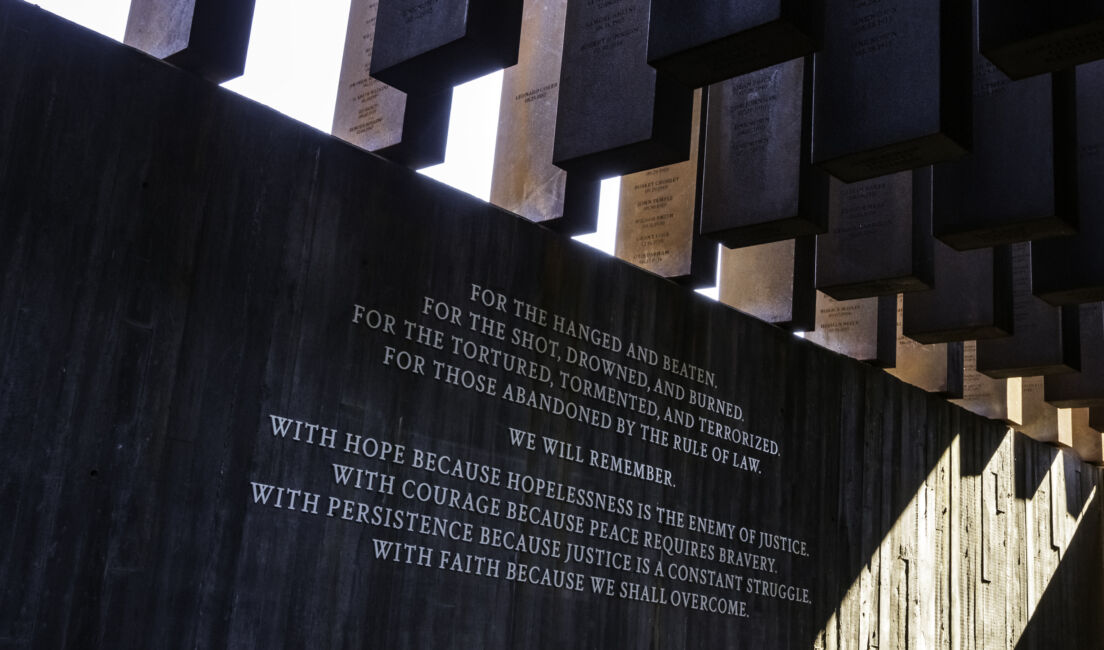Reconciliation, remembrance, and 5 links worth your time
The uncomfortable subject of reparations

Earlier this year, Evanston, Illinois became the first U.S. city to approve a plan to make reparations to Black residents who had been harmed by “discriminatory housing policies and practices and inaction on the city’s part.” Though Evanston was first, it is unlikely to be last: other municipalities are actively discussing plans for making reparations to their citizens to address racism, inequality, and slavery.
Based on recent polling, the odds are good that the subject of reparations aimed at righting the wrongs of slavery and racism in the United States probably makes you uncomfortable.
Putting the past behind us
My podcast guest this week, Professor Colleen Murphy, studies transitional justice. You might not be familiar with this concept (I wasn’t), but you probably are aware of places abroad where it has been implemented to deal with human rights abuses: Bosnia and Herzegovina in response to war crimes and abuses and South Africa following apartheid.
When widespread wrongdoing tears a country apart or causes extensive harm, transitional justice can offer hope for reconciliation and repair. The process takes many years and requires several key steps: 1) an acknowledgement of wrongdoing, 2) accountability, 3) reparations to those wronged, 4) a way to ensure that the harm does not re-occur, and 5) a way to remember the wrongdoing in the future.
This is, of course, the exact opposite of “putting the past behind us.” Professor Murphy understands the desire to put the past behind us. It is often uncomfortable and painful to look closely at the past and calls for “moving forward productively” offer optimism for the future. But Professor Murphy believes that the impact of wrongdoing doesn’t go away because we choose not to think about it.
Living up to our ideals
Whatever your political ideology or your opinion about how to address racism and inequality, I think you’ll find my conversation with Professor Murphy offers a lot to think about. As she says, if we want to live up to the ideals we espouse as Americans, we must be willing to confront our past and look honestly and carefully at what we’ve done wrong as well as what we’ve done right.
This week, in addition to the links I’ve mentioned above, I’ve included an opinion piece Professor Murphy wrote in late January that considers calls for unity against the violence of January 6th. While we may think about the principles of transitional justice as most appropriate for war-torn countries or harm caused by unjust governments abroad, Professor Murphy argues that we, as Americans, can apply these principles at home.
In fact, we already have following Japanese internment during World War II, so there are historical precedents that suggest applying these principles to slavery and racism could lead to healing. I’ve included a piece by a conservative author who agrees, and another by a writer who thinks recent remembrances of 9/11 ought to have included reparations for those in Iraq harmed by our response to terrorism.
It’s not easy to look honestly at our mistakes and doing so certainly won’t lead to unanimity about how to correct those mistakes (or avoid making them again in the future). But a lack of agreement means it’s even more important that we learn how to talk civilly with one another about these subjects.
5 links worth your time
- Here’s how much 16 qualified Evanston, Illinois families would receive in reparations if the city’s plan moves forward.
- Poll shows that a high percentage Americans oppose cash reparations for the descendants of enslaved people.
- Redressing wrongdoing with transitional justice theory.
- The right kind of reparations make us all better off.
- Should Iraqis be paid reparations for post-9/11 damage?
Photo by jackienix on Adobe Stock